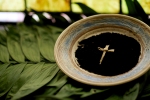September 23, 2016
Reclaiming Morning Prayer

The message heard loud and clear at our monthly UBE (Union of Black Episcopalians) meetings at different congregations throughout the Diocese of New Jersey was how difficult it was to fill all Sunday services with a clergy person. The reasons were varied; the congregation may have been in transition, or the full time clergy was on vacation, on sabbatical, or even ill.
One idea stood out from all of our discussions. A clergy person suggested we re-embrace layperson led Morning Prayer as a legitimate form of Sunday morning worship. Response was mixed. Anglicans from the Caribbean or Africa experienced Morning Prayer often, due to less frequent clergy availability due to the number of congregations to be served. Older members had positively experienced Morning Prayer as common practice in times past. For others it was a harder pill to swallow, as they believed if there was no Communion then we didn’t really have a Service. There was also feedback that Morning Prayer was unfulfilling and it some cases even boring.
As a group we agreed to wholeheartedly embrace layperson led Morning Prayer as an option for Sunday worship. The Rev. Canon Martin Oguike, who initially introduced this idea, agreed to lead a full day workshop on how to do Morning Prayer well.
Here are some of the key take-aways from the workshop. They may seen obvious yet I believe they are worth sharing:
- You can include music at Morning Prayer. As we know uplifting music is one of the major enhancers to our services. Including it keeps both the choir and the music director engaged, with the music director still integrally involved in the hymn selections (Processional, Recessional, Offertory etc.).
- You can have a “sermon” at a Morning Prayer, for example, telling our story, sharing experiences, interpreting the lessons, reading poetry, doing Bible Study all are legitimate forms in the context of Morning Prayer. As with any effort, preparation does enhance the quality of these presentations.
- You can have birthday, travel, and all other blessings and its okay for a layperson to lead the Prayers for the People. It is also okay to do the Peace and announcements and welcome visitors and of course do the Offering. Again obviously!!
Of course we also reviewed the Morning Prayer liturgy in depth. Putting it all together the main ingredients for spirit-filled worship service are all there. We felt more confident about taking this on.
When the rector at my church, St. Augustine Episcopal Church in Asbury Park, New Jersey, resigned we had an unexpected chance to put this training into practice. The Lay Eucharistic Ministers (LEMs) who had all attended the training held wonderful Morning Prayers. We use a phone system to invite the congregation to worship on Sunday. It also tells what type of service we will have and who will lead. Initially the attendance at Morning Prayer was lower. However, those who attended gave great feedback, visiting clergy also gave great feedback, and as word spread previous attendance levels were again experienced.
Recently, I had my own unexpected Morning Prayer moment while attending a midweek service at St. Augustine’s Episcopal Church in Brooklyn, New York. This a large congregation and the midweek service averages 75 to 100+ attendees. At 9:55 am I was asked to lead Morning Prayer at 10:00 am, as the supply priest unfortunately was not available. “Where are the LEMs?,” I exclaimed, as I dialed another clergy person I knew, “Why me?” Of course I relented and my training and positive experiences kicked in to enable a meaningful worship service based on feedback from the parishioners.
Canon Oguike says that he sets aside one Sunday in his congregation for Morning Prayer even though he is present. I believe Morning Prayer is a great way to lift up lay leadership and to experience the full breadth and flexibility of our Book of Common Prayer and our Episcopal worship.
Don't miss a blog post! Subscribe via email or RSS, using the grey box on the upper right.





